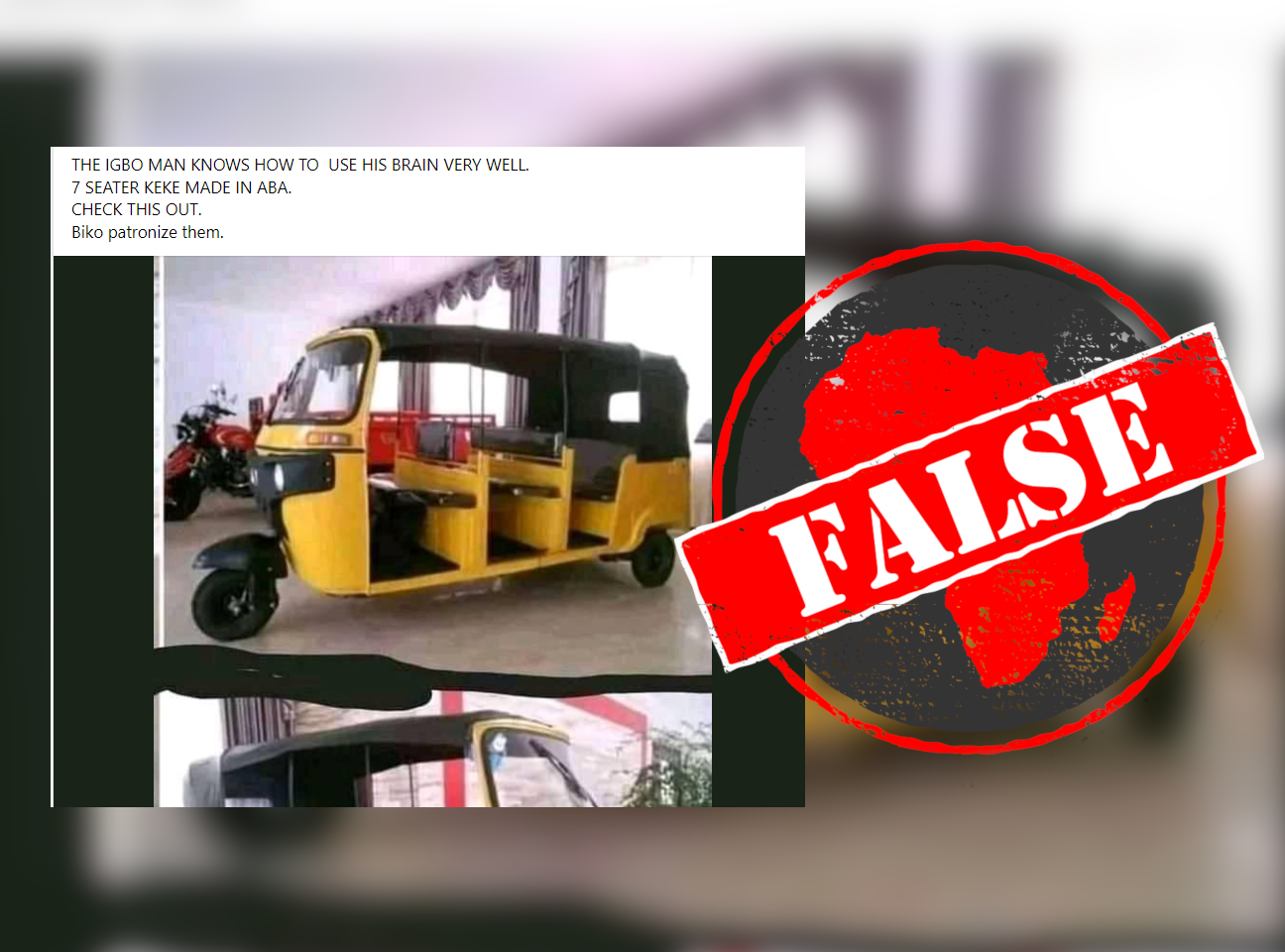Two photos of a yellow three-wheeler tuk-tuk – known as a tricycle, keke and by many other names – has appeared in many Facebook posts with a claim it was made in Nigeria’s southeastern city of Aba, the commercial centre of Abia state.
“THE IGBO MAN KNOWS HOW TO USE HIS BRAIN VERY WELL. 7 SEATER KEKE MADE IN ABA. CHECK THIS OUT,” one caption to the photos reads.
Aba has a reputation for manufacturing and commerce. It’s populated by the Igbo people, like other parts of Nigeria’s south-east geopolitical zone.
But was the three-wheeler really made in Aba by Igbo people?

Photos from Alibaba e-commerce site
A Google reverse image search reveals that the photos were originally posted on Alibaba, a popular Chinese e-commerce website.
The version on Facebook has been doctored, with the Alibaba URL blacked out. The undoctored version would have raised doubt about the made-in-Aba claim.
“Hot sale 2017 wholesale price 4 passengers three-wheeler taxi motorcycle for sale in Ethiopia,” the headline on the sales page reads. The price is from US$1,500 to $1,700.
Product information shows that these types of tuk-tuk were manufactured in Chongqing, China, under the brand name of Dayang.
Another sales page with the same photo suggests the three-wheelers were also sold in Bolivia.
The tuk-tuk was not made in Aba, and seats four, not seven. The photo was doctored to conceal evidence it was sourced from Alibaba.
Republish our content for free
For publishers: what to do if your post is rated false
A fact-checker has rated your Facebook or Instagram post as “false”, “altered”, “partly false” or “missing context”. This could have serious consequences. What do you do?
Click on our guide for the steps you should follow.
Publishers guideAfrica Check teams up with Facebook
Africa Check is a partner in Meta's third-party fact-checking programme to help stop the spread of false information on social media.
The content we rate as “false” will be downgraded on Facebook and Instagram. This means fewer people will see it.
You can also help identify false information on Facebook. This guide explains how.


Add new comment